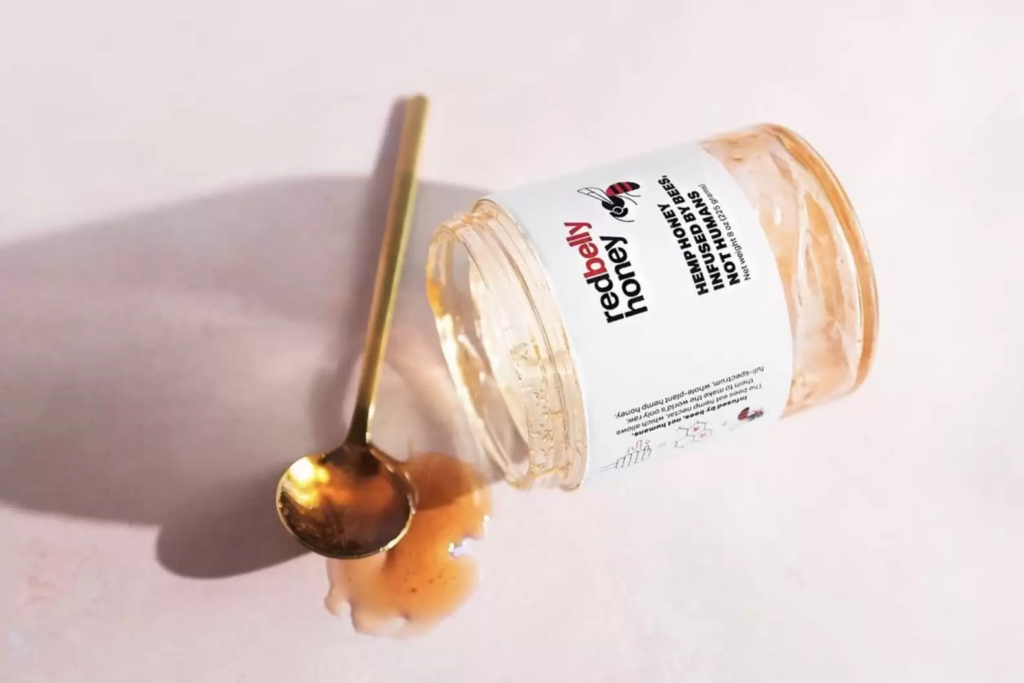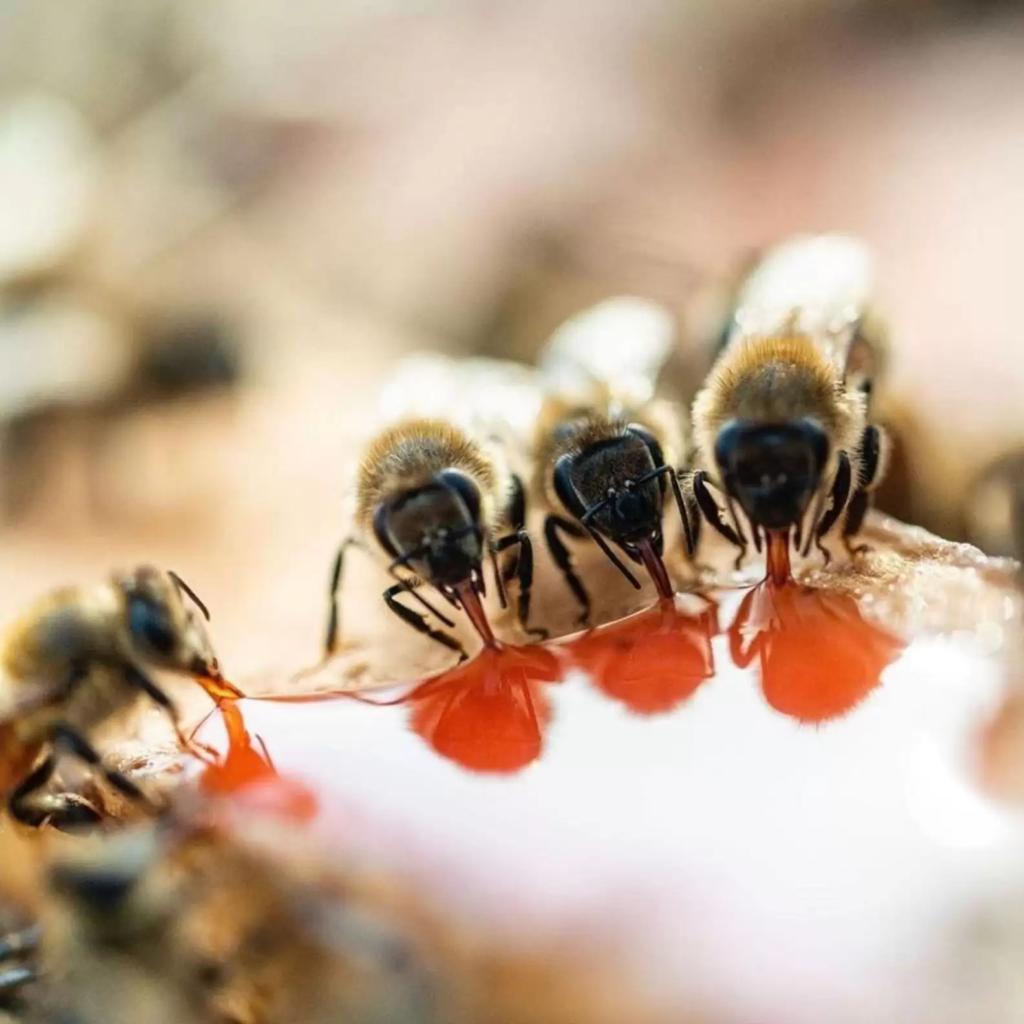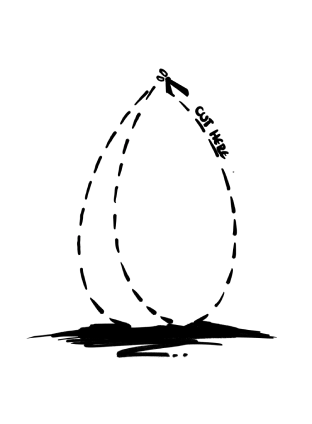Joline Rivera of Red Belly Honey talks about cannabis and food as medicine.
Let’s be real—not all CBD foods taste good. It’s not a popular opinion as cool, well-branded, hemp-infused products hit virtual and physical shelves all over the world, but the reality is we’re still figuring things out, formulation-wise. Even in the particularly beloved and saturated gummies scene, many may start out tasting okay only but often end with a weird aftertaste. It’s not easy to create CBD foods that are effective and taste good—so when it happens, we take note.
One of the best CBD edibles I’ve ever had came from Red Belly Honey, a company founded by Chicago native Joline Rivera—the woman behind Kitchen Toke, a magazine dedicated to cannabis in the culinary realm. You don’t have to just take my word for it—at last year’s Food & Wine Classic in Aspen, Colorado, Red Belly Honey was the first-ever cannabis-related brand to be invited to the prestigious culinary event, and was used to marinade a watermelon dish that was served to 4,500 attendees.
The gummies are just as good, sweetened only with their hemp honey. The two Passion Fruit and Blueberry flavors don’t include any added sugars.
Originally from Des Moines, Iowa, Rivera overcame a challenging home life and went out on her own at 18, becoming the first in her Mexican-American family to get a college degree before embarking on a career in the publishing world. Learn more about the fascinating process behind Red Belly Honey and why it’s unlike any other CBD food brand on the market.

When I moved to Chicago, the person I was dating at the time was doing a triathlon, and I decided to train for one, too. I had been eating really clean, but the more I trained, the more miserable I felt and I started gaining weight rapidly. I saw four different doctors and each asked things like, “Are you sure you’re being honest about your eating? Are you being honest about how much you’re exercising?” It was so frustrating and discouraging. I finally saw a fifth doctor who believed me and ordered an extensive blood test, and we found that I had markers for Parkinson’s, diabetes, and heart disease. I had no idea I had insulin resistance and that I was on my way to Type 2 diabetes.
Joline Rivera
The doctor didn’t write me an over-the-counter prescription, though—he wrote me a food prescription. I did exactly what the doctor told me and was able to reverse my insulin resistance over time. That was the day it clicked for me: Food is medicine.
Joline Rivera
How did this realization lead you to cannabis?
While running my own design business, I’ve had my right-hand person, Nellie, who is not only a part of my team but one of my best friends and like a sister. Her dad had been battling cancer, and I knew from reporting on food trends that chefs were cooking with cannabis for health benefits that could offer her dad relief. She agreed it was worth a try, and I got to researching a cannabis chocolate recipe.
A short while after her dad ate a few chocolates, you could see his face and demeanor change. His wife was curious about this obvious shift and ate a chocolate herself, and you could see her relief, too. There was a lightness; such a different energy.
That is incredibly powerful—to see it right before your eyes.
It was eye-opening to see the relief that it brought them as well as family members who’d been watching their loved one suffer. When we left their house, Nellie and I sat in the car for a while. I cried knowing that might be the last time that I see him, and it was. At his funeral, some family members walked up and told me, “We heard what you did for Fred. Thank you for giving him a good day before he passed.” It was that experience that made me completely flip my career. I decided to take everything I knew to create Kitchen Toke, a brand that informs folks how to cook with cannabis for health and wellness, which introduced me to this process.
Why honey?
Kitchen Toke reports on all sorts of cannabis food trends, and at one point, I heard of a researcher based around Tel Aviv who discovered a process in which bees consumed whole hemp and created honey that was naturally infused with CBD. I wanted to figure out how I could use that same process [here in the U.S.] to bring naturally infused CBD honey to a low enough level to be able to get in a supermarket. Functional food is any food that brings you value beyond its nutritional value—cannabis is a functional food, as is honey, so merging the two made sense.
How does the process work exactly?
Our bee farm is based in California and the bees are fed hemp so they naturally produce hemp honey. We are not adding CBD to the honey. The bees do it themselves through their digestive process, just as they digest flower nectar. Most times, you can only eat one or two gummies from other brands because of the amount of cannabinoids. Ours are dosed in a way that you can eat the whole bag.
What excites you most about this unique product?
The hemp also supports the bees’ health, which is super important because bees are vital to the planet’s ecosystem. There is a study about bees and hemp that showed hemp terpenes can help bees’ antioxidative systems, which isn’t surprising as we know terpenes help humans’ nervous systems, as well.
What’s great is that the more honey we have to make, the more bees that we need, and the more bees we have that consume hemp, the healthier the bees, which leads to stronger, more pesticide-resistant bees buzzing around the ecosystem. It’s good for us, the bees, and the planet.
Source: Thrillist.


